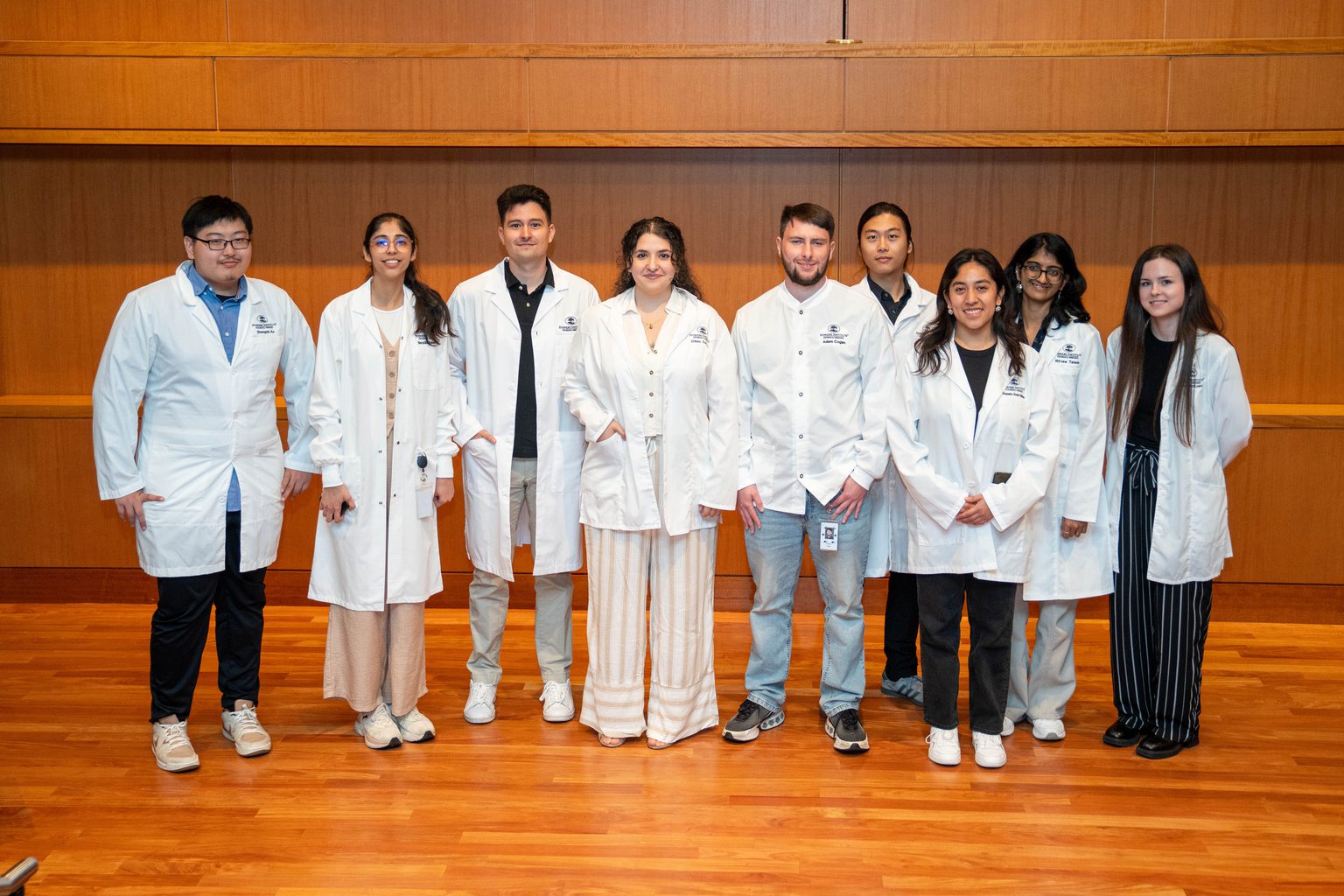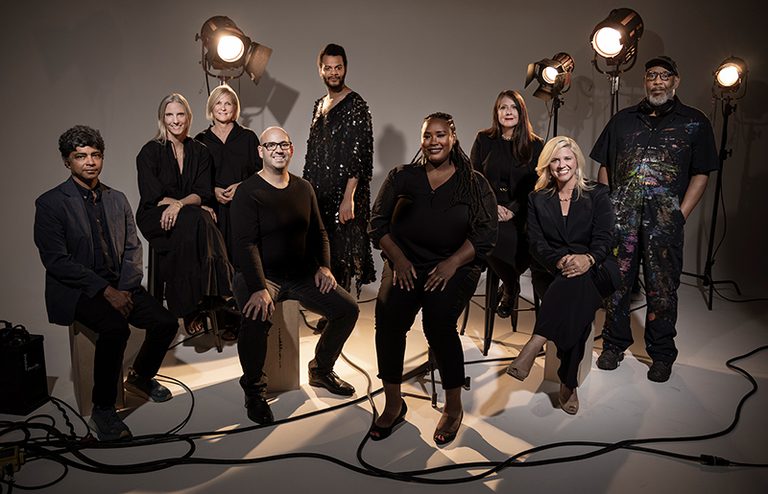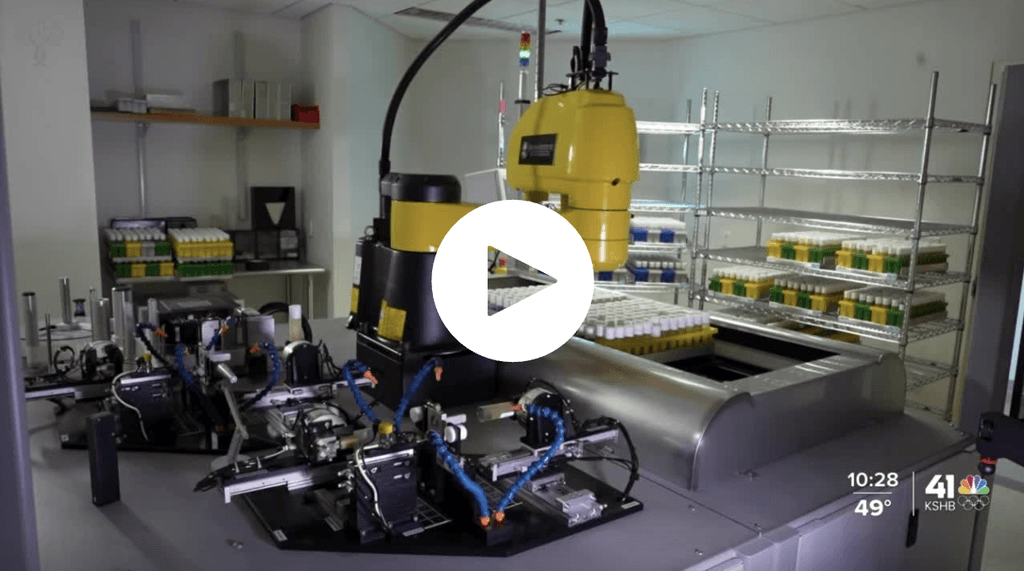News

09 October 2025
2025 Lab Coat Ceremony Welcomes Graduate Students To Their Thesis Labs
An annual tradition marks the start of scientific discovery for the 2024-2025 class of Stowers Graduate School students.
Read Article
Video
Stowers Scientific Director, Kausik Si, Ph.D., recently appeared on the University of Kansas Hospital’s morning medical update discussing his research on the brain and memory as part of #BrainAwarenessWeek.
Stowers Scientific Director, Kausik Si, Ph.D., recently appeared on the University of Kansas Hospital’s morning medical update discussing his research on the brain and memory as part of #BrainAwarenessWeek. Si appeared with a panel of experts and doctors from the Hospital to explain what we know about the brain and how that’s helping teach us more about treating and preventing disease.
Watch the video to hear the full conversation. Below is an excerpt of the Q and A with Kausik Si, Ph.D.

Stowers Scientific Director, Kausik Si, Ph.D.,
Memory is essentially the brain’s ability to reconstruct the world around you and the internal representation of that. What I mean by that, is the brain is not a tape recorder…it’s not recording exactly what’s going on. It’s recording a representation of what’s going on . Memory is the brain’s ability that in the future, when you encounter something that’s similar, then it recalls that information stored inside the brain. So, that in essence is how you think about memory in human and animals.
Yes, and I think that’s the joy of basic sciences. My interest with my research was trying to figure out how we make memories and how we hold onto them for a really long time. It turns out that the fundamental process involved in creating a stable memory is related to amyloids. Amyloids are important when it comes to age related dementia or neurodegenerative diseases. My research essentially forced us to rethink why the brain makes them, why they form, and what happens when they form.
One thing we need to understand, that I find absolutely fascinating, is that the brain is actually not seeing, hearing, touching, or sensing anything. It sits in the dark. All it receives are a series of electrical signals. From those signals, it’s reconstructing the world for us. If the brain cannot reconstruct, it does not exist. For example, if I move my mouth, but don’t talk, you are not hearing anything. But if you are a bat, you’d have heard it. And the reason is that our brain cannot sense or create enough signal to hear a change in air pressure—as opposed to a bat, which can. What the brain does, essentially, is it gives us an enormous capacity to sense the world and do things, but at the same time, it can actually limit us. So as a scientist that really fascinates me.
My interest was not trying to understand how we come down with these devastating diseases, my interest was trying to understand how we make memories. Our answer to that actually lead us to amyloids. What we found is there are proteins that are different than the ones that cause disease. They also form a structure that – just like the disease-causing amyloids – but they actually help animals form and hold on to memory. So that raises the question, when do amyloids become bad and when do they become good? Is there a relationship between the good and bad amyloids in the brain and can it help us to approach these diseases in a new way that has not been done? Because so far, our attempts to treat the diseases was to prevent amyloid formation or remove amyloids from the brain. Our research raises a very dramatically different possibility. Can we give brain the capacity to form good amyloids as we get old – and will it help us to form memories? I do not know that answer, yet. If you’re a fruit fly, I can say for sure. But for humans, we don’t know yet – but that’s exactly where we want to go and where we are going. It’s tremendously helpful to science to have access to the brain.
Our brain is distinct because no other animal is sitting down and having this conversation like we are right now. But there are some basic processes, like how do two neurons communicate with each other and how do they change each other. These are fundamental processes that all brains, if they are made of neuron, must be utilizing. And that is what we see in our research. Now whether in our brain they’re simply an elaboration of those processes, or if we have unique things going on in our own brain, that is something we learn overtime.
A fruit fly has 150,000 neurons and in a mouse brain there are millions, but in our brain, we have billions. So, you can imagine that simply the number suggests there are some unique things going on in our human brain and that is good for us.
Addiction, at the end, is a disease of memory. Once somebody has used drugs, it is very well documented that if they stop, and they go back to where they first encountered the drug, they will have the symptoms as if they are actually taking the drug or experiencing the effect of that again. So essentially, the drug creates a very strong memory of what happens when you are taking the drug and the subsequent events. So, if we really want to understand and treat really chronic drug related disorders, we really need to understand how we treat memory related disorders.
The biggest advancement is that our ability to see, measure, and manipulate neurons has dramatically improved. We have gotten to the stage where we can recall from the human brain the activity center of neurons and we can predict what the person is thinking. And if you think about it, that’s really mind boggling and what it means is one day, hopefully, we’ll be able to read all the electrical activity and figure out what is it you’re thinking what are you imagining and to me if that happens it just blows my mind away…it’s just remarkable.
I think we tend to focus on the problems, but I think we should focus on the amazing capacity of the brain and what a wonderful organ this is – I think this is the most important part of the human body and we should cherish it.
News

09 October 2025
An annual tradition marks the start of scientific discovery for the 2024-2025 class of Stowers Graduate School students.
Read Article
In The News

03 July 2024
From In Kansas City Magazine: Meet 10 people, including Stowers Scientific Director Kausik Si, Ph.D., who are making a difference in Kansas City.
Read Article
In The News

08 March 2024
From KSHB, one of the area's top scientists, Kausik Si, Ph.D., from the Stowers Institute received a coveted award for his "paradigm shifting" work to understand how our memory works and how that defines us.
Read Article
Press Release
21 February 2024
Scientific Director Kausik Si from the Stowers Institute for Medical Research alongside Investigator Lukasz Joachimiak from the University of Texas Southwestern Medical Center received CZI's Collaborative Pairs Pilot Project Awards grant for their project titled, “Tuning memory by altering amyloids.”
Read Article